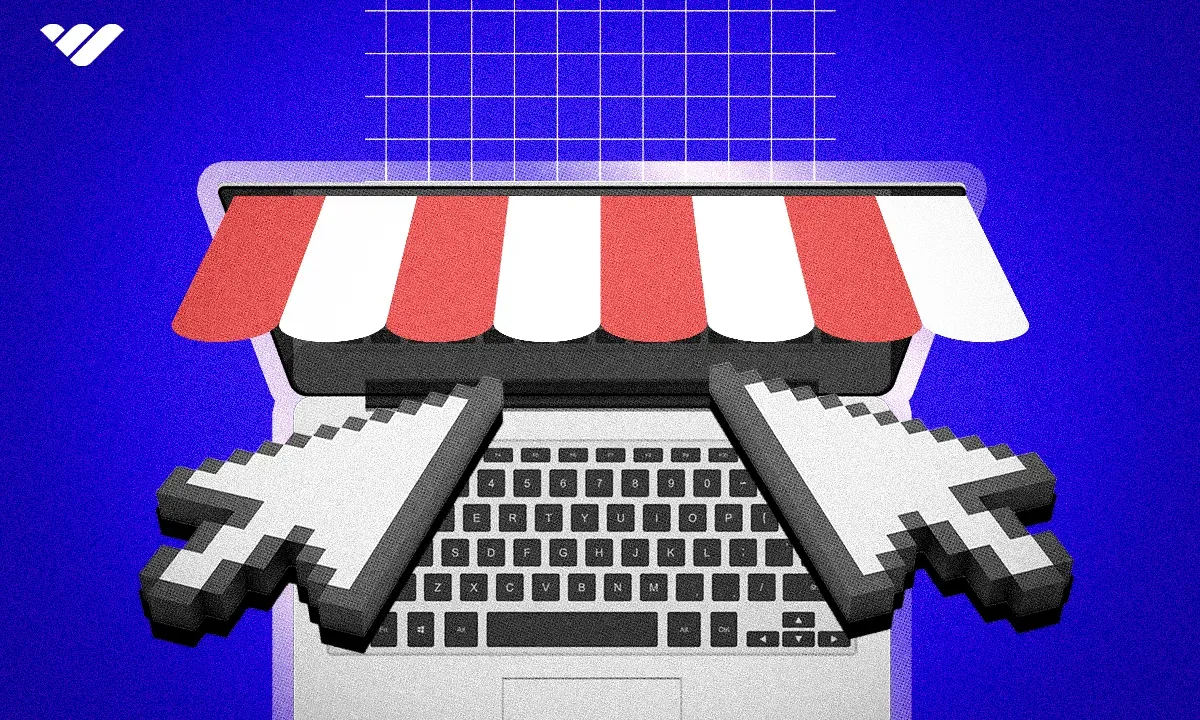Ecommerce automation uses software to handle repetitive tasks like marketing, inventory, and customer support - helping you streamline and scale your online business.
Key takeaways
- Ecommerce automation uses triggers, conditions, and actions to handle repetitive tasks like marketing, fulfillment, and customer service automatically.
- Prioritize automating resource-heavy, repetitive, and cross-platform tasks to free up time for strategic business growth.
- Email automation recovers abandoned carts and improves retention, while automated customer service provides 24/7 availability.
Ecommerce automation uses software to handle repetitive tasks like marketing, fulfillment, and customer communication - helping your online business run faster and more efficiently.
Whether you’re running a one-person store or managing a growing team, automation gives you more time to focus on strategy and sales instead of day-to-day admin.
With so many moving parts in ecommerce, and so much room for human error, automation is the easiest way to streamline operations and scale sustainably.
In this guide, we’ll break down exactly what ecommerce automation is, how it works, and how you can use it to save time and boost sales.
What is ecommerce automation?

Ecommerce automation is the process of using software to complete tasks automatically according to specific triggers, conditions, and actions.
These workflows can cover everything from inventory management and order tracking to marketing emails and customer segmentation.
Here’s how a simple automation might look:
- Trigger: A customer places an order for multiple products.
- Condition: The order total is greater than $50.
- Action: The customer is automatically added to your Bronze tier and receives a discount for their next purchase.
By setting up automations like this, your store runs smoothly in the background - saving time, reducing mistakes, and improving your customer experience
What are the benefits of ecommerce automation?
Ecommerce automation saves time, boosts sales, reduces human error, and improves customer experience - all while helping your store run more smoothly behind the scenes. By automating repetitive processes, you can focus on growing your business instead of micromanaging every task.
Let’s break down how automation helps across your operations, marketing, and customer experience.
Save time
When ecommerce processes are taken care of by automation tools, you can pretty much get more done in less time. Here are a few examples to help you get to grips with what ecommerce automation can handle for you:
- Auto publish/unpublish of website content and promotions
- Auto publish/unpublish collections, specific products, or sale items
- Auto customer segmentation to help you engage with your customers
- Auto notifications to team members who need to take the next step in the sales process
It goes without saying that ecommerce automation is crucial for any online store. With tasks handled for you, it allows you to maximize your sales with minimal time and manual input - so you can focus on more important aspects of your business growth.
Increase sales and marketing efforts

As well as supporting customer satisfaction during the buying process, ecommerce automation can benefit both sales and marketing teams hugely, including:
- Triggering email automation campaigns and other automated emails/message sequences as a follow-up to a purchase or inquiry
- Providing a personalized customer experience with real-time customer segmentation
Reduce errors
When your ecommerce business is run manually, there is so much room for human error. Think about it, if you have an offer running and need to remove promotions or specific products at a specific time, there are so many things that could go wrong.
Ecommerce automation tools handle all of this for you, so when something is triggered, it's all taken care of.
Accurate data and information management are critical to the success of your ecommerce business. Whether you're capturing data, delivering a discount code, or segmenting customers, these otherwise repetitive tasks are all handled for you with ecommerce automation.
Improve customer experience
Customers value a great experience when they land on your website. If they've got a question, ecommerce customer service options such as chat programs can solve a customer's query fast. This not only leads to greater customer satisfaction but also retention - helping you to build customer loyalty.
For example, Apple provides comparisons on their website to enable customers to decide between products - and if they still need help, there's the option to 'Chat with a Specialist'.

What sort of tasks should you use automation tools for?
You can use ecommerce automation tools for any task that’s repetitive, resource-heavy, or involves multiple platforms - especially ones triggered by specific customer actions. Here are the most common types of tasks worth automating in your online business.
Resource-heavy tasks
When you first set up your online store, the chances are you did it all. You wore every hat, from the customer service advisor to the marketing exec working on ways to boost sales. The trouble here is, when you're new to running ecommerce businesses, it's very time-consuming.
Even when your website has been running for a while, there's still a lot to keep up with.
Automated tasks can not only make your business run more smoothly but also free up a lot of time for you and your team - time that you could be spending on growing your business!
Repetitive tasks
If you find yourself doing the same tasks manually over and over again, why not turn those manual tasks into automated ones?
Whether it's managing customer interactions or fulfillment automation, a strong ecommerce platform will connect with automation tools to take these tasks off your to-do list.
It could be something as simple as automating customer interactions. When a customer has a question, automating responses and directing them to FAQs for further information can not only make your brand available 24/7 but also save you time from manually managing a live chat just for common queries.
Tasks that involve multiple platforms

When several platforms are involved, carrying out manual tasks is a recipe for disaster. Although it's crucial to find the right platform for your ecommerce site, many ecommerce companies take advantage of ecommerce automation to handle cross-platform tasks.
With Whop, our all-in-one ecommerce platform handles everything, from order processing and fulfillment to subscription management and payment processing. So all you have to do is sit back, work on your marketing efforts, and grow your ecommerce brand.
Tasks triggered by specific actions

The best-automated workflows are triggered by a specific action. As we explained above, ecommerce automation involves a trigger (what sets off the automation), a condition (the criteria that needs to be met), and an action (what happens as a result of the previous two).
Let's say a customer makes a purchase - you're going to need a strategy in place for order management. This may be automated processes for the product being shipped or delivered digitally, email automation to confirm their order, and potential follow-ups from customer support.
Email automation

Your email marketing strategy isn't just about sending promotional emails. Many ecommerce brands use ecommerce automation to cover things like abandoned carts, order tracking, order fulfillment, and loyalty promotions.
When a customer abandons their cart, automated emails can help to grab back potential sales, increasing your conversions. You can also pair abandoned cart-related emails with remarketing via social media posts and even paid advertising.
By setting up an automated workflow for your ecommerce store, not only can you boost sales but you'll also improve efficiency. After all, keeping your brand at the forefront of customers' minds is crucial for hitting sales targets and gaining returning customers.
Looking to take your email marketing to the next level? Check out our article on the top online newsletter platforms.
Who benefits the most from ecommerce automation software?
Incorporating ecommerce automation into your business can make life easier all around. Here are just a few areas of your business that will benefit the most:
Operations
The day-to-day running of your ecommerce business is often the most time-consuming. Whether it's inventory management, shipping, or order fulfillment, your operations can be optimized with automatic processes.
Customer service
By implementing automated workflows, ecommerce brands can provide streamlined customer service.
With the power to leverage specific customer data, automation processes can help you discover key times to reach out to customers as well as create strategies for tailored promotions.
Marketing
Many online businesses use automated systems to understand their customer activity and product information better. With a greater understanding, marketing strategies become more precise - and therefore more successful.
If this process were to be completed manually, not only would your marketing strategies become less efficient, but it would also be a drain on your time and resources.
Where marketing automation really shines is in its ability to segment customers based on specific criteria, giving you more opportunities to tailor products and promotions.
Design
Ecommerce automation isn't just about inventory management or looking after your supply chain. In fact, many of the tasks completed by ecommerce automation software are more admin-based.
From keeping your website maintained to running upgrades and reports, your online storefront can also benefit from automating design tasks.
Grow your ecommerce business with Whop

If you’re building an online business, Whop is the platform for it. You can create your Whop in minutes and start selling any type of offer - from courses and memberships to downloads, coaching, and software.
Whop’s all-in-one platform helps you automate payments, manage subscriptions, and handle fulfillment so you can focus on growth.
Plus, you get built-in marketing tools, analytics, and 24/7 support - all with fees as low as 2.7% + 30¢ per transaction.
FAQs about ecommerce automation
Still have questions? We've got the answers. Learn even more about ecommerce automation below.
What is an ecommerce automation tool?
An ecommerce automation tool is software that works to automate repetitive tasks in your business, such as order management, inventory, marketing, or customer service.
How can you automate customer service?
There are a few different ways you can automate customer service processes, including:
- Adding an auto-engage process to respond to customers' requests for refunds, shopping cart issues, and order fulfillment
- Automating tickets assigned to staff to deal with customer queries
- Implementing an auto-response chatbot to help deal with customer FAQs
How can I start using ecommerce automation?
The best way to start using ecommerce automation is to find the right platform for your online store. While some ecommerce businesses choose to create their own in-house system, this can be incredibly costly.
Instead, using an all-in-one ecommerce platform such as Whop will ensure your business runs smoothly - from taking care of payments and order management to subscription management and even customer resolution.



